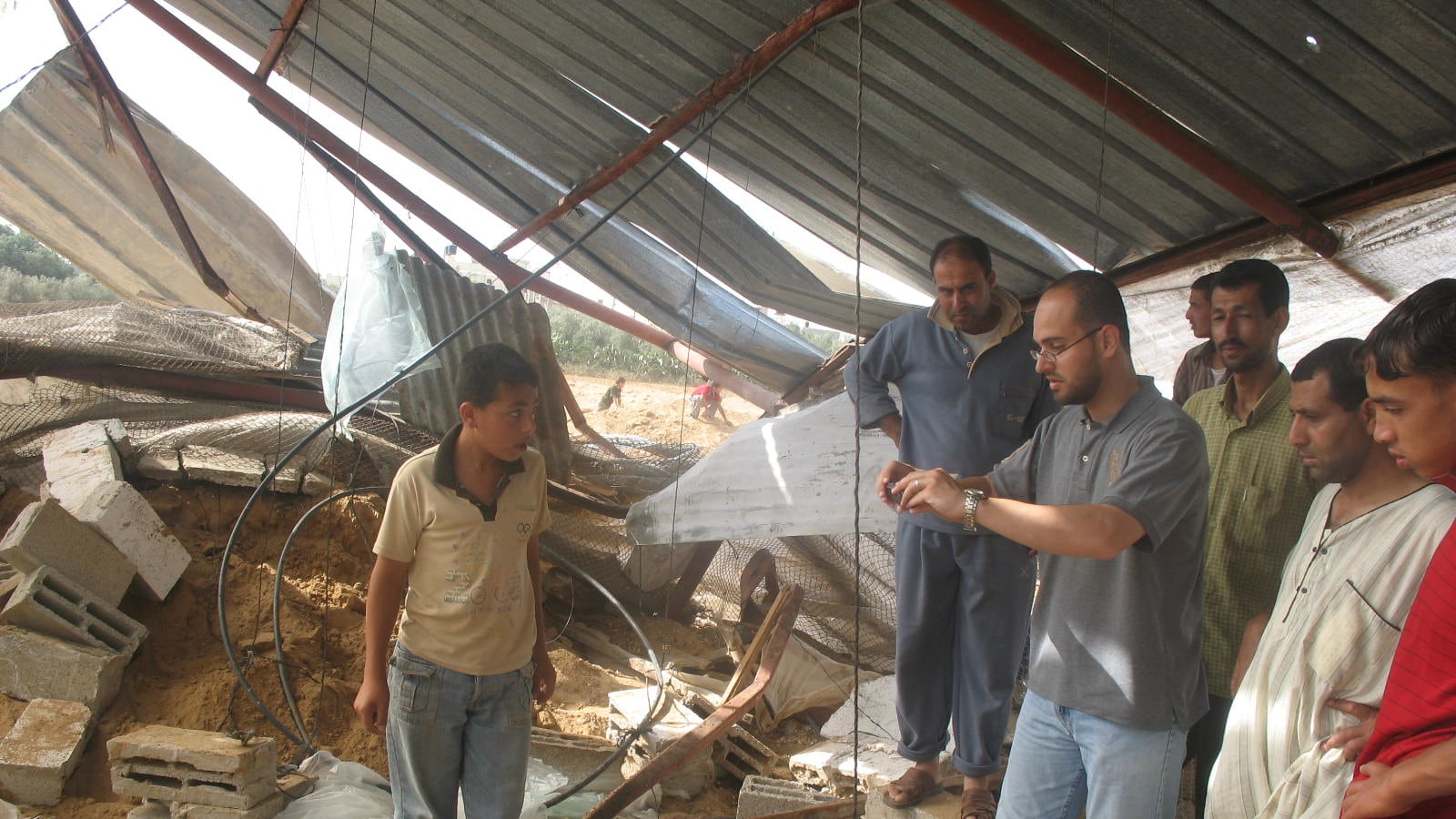The warplanes are idle, the rockets are still, and people on both sides of the border between Gaza and Israel are closely watching the implementation of the Egyptian-brokered ceasefire agreement that ended the most recent escalation of violence. Israel has also begun to fulfill some of its unspecified promises, by lifting restrictions on access for the Palestinian residents of Gaza. Part of the new terms means that farmers, like Marwan An-Najar, can now access more of their farmland located in a zone once forbidden by the Israeli army. They still, however, cannot travel or sell their crops to available markets in Israel or the West Bank.
As we recently saw, the Israeli government relaxed restrictions on fishing and farming almost immediately following the ceasefire. Israel, which controls Gaza's territorial waters, expanded a fishing zone off the coast from three to six nautical miles, allowing access to larger fish (though the better catches remain in deeper waters that are still off-limits). Israel also reduced restrictions in a zone near the Israeli border, but inside Gaza, containing a third of Gaza's arable lands; farmers are now allowed to access most of their lands in the so-called buffer zone.

Marwan An-Najar, a 36-year old farmer from the Khan Younis area of Gaza, had not been able to cultivate his family's land since 2002. His income fell from $1,340 per month selling produce to less than $250 per month, as he resorted to work as a hired farmworker. The relaxation on farming means that he can now grow crops on his own land, which had been repeatedly bulldozed by the Israeli military. This season, he plans to begin farming by growing wheat and barley until he can re-plant trees. Despite getting back his land, though, continued restrictions on outgoing goods mean that Mr. An-Naja and his family will experience only a limited rise in income.
Since 2007, Israel has banned Palestinians in Gaza from marketing their goods in Israel or the West Bank, even though they are permitted, under restrictive conditions, to transit their goods via Israel to Europe. Exporting through the Rafah Crossing with Egypt remains forbidden. High transport costs and low demand in Europe for goods from Gaza limit the economic viability of export abroad. Mr. An-Naja used to market 70 percent of the tomatoes, peppers, onion and citrus fruit that he grew to customers in Israel and the West Bank, where prices and demand are relatively high. So as long as the ban on outgoing goods remains in place, he will restrict himself to the lower profit margin of the local market.
Israel has also relaxed restrictions on the Palestinian construction industry. This month, Israel began allowing 20 truckloads of gravel per day to enter Gaza for private sector use. Although this may not sound like big news, Israel has restricted the entrance of construction materials into Gaza to internationally funded projects for the past five years, imposing burdensome approval requirements on aid agencies that have added tens of thousands of dollars to the cost of building schools, homes, and clinics. In the meantime, the private sector has purchased construction materials quite easily from tunnels underneath the Gaza-Egypt border. I hope that this mostly symbolic move (20 truckloads is less than 10 percent of Gaza's daily demand for gravel) will be a first step in disavowing an Israeli policy that regulated construction materials as if they were highly specialized weaponry.
Regarding access for people, the Israeli military still considers those inhabiting the buildings constructed in Gaza to be a priori dangerous. There has been no change in restrictions on the movement of people between Gaza and the West Bank, limited to "exceptional humanitarian cases." But, like the ban on construction materials, the policy seems difficult to justify on security grounds. Israel allows about 4,000 cases per month of Palestinians entering Israel from Gaza, including those heading to the West Bank. Access, however, is almost entirely for short term visits, like business meetings (mostly for men) and medical care and funeral attendance. When Andalib Adwan, who has regularly traveled from Gaza to the West Bank for short term visits, asked to enter the West Bank for an extended period to complete her Master's degree in gender studies, the Israeli government refused. Israel says it pursues a policy of "separation," preventing Palestinians from Gaza from staying in the West Bank, which Israel defines as a closed military zone. The result of these ongoing restrictions is that family members are separated from each other, students can't reach their universities, and professional opportunities remain blocked.
It is encouraging to know that Israel has lifted some of the restrictions that block normal economic and social life in Gaza—without compromising its security. But much more can and should be done. The durability of the ceasefire depends not just on preventing rockets and airstrikes—but also on allowing Palestinians in Gaza the access they need to invest in a stable, viable future.






